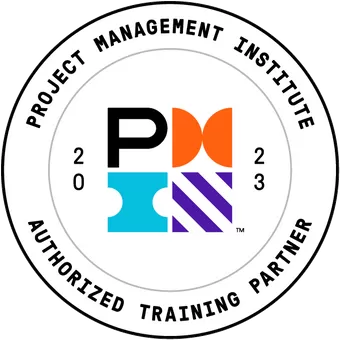PMI-PBA® Certification Training Course - PMI Professional Business Analyst
The PMI-PBA® certification by PMI validates your expertise in managing requirements and business analysis. This advanced course enhances your skills, covering essential concepts and techniques from PMI’s Guide to Business Analysis.
4.63 (294)
Language
English

Accreditation
PMI

Why Bakkah?
Money Guaranteed
Global Accreditation
Flexible Learning
About this Course
What are the Goals of the PMI-PBA Course?
The PMI-PBA certification is a global credential that is one of the most in-demand certifications in business analysis. It empowers its holders to achieve project goals, refine business strategies, define stakeholders’ requirements, improve the organization’s process, and shape project outputs. It highlights learning how to advance business analysis skills that help participants get professional credibility.
It’s expected from this course to:
1- Master business analysis knowledge areas
The PBA course helps you understand deeply PMI guide principles, practices, and techniques and know how to apply them to real-world projects to deliver successful outcomes.
Moreover, it’s expected to acquire a broadened understanding of the PMI domains like needs assessment, traceability and monitoring, elicitation and analysis.
2- Developing requirements management
With the PBA certification course, you’ll master identifying stakeholders’ requirements, gather and, validate requirements by utilizing different eliciting techniques, and use tools and techniques designated for modelling requirements.
3- Mastering stakeholder engagement
It’s expected to be proficient at meeting the expectations of stakeholders, understanding their needs, and solving their problems with different strategies.
4- Gaining the global recognition
Completing the PMI-PBA exam prep course is your main step to preparing for passing the international exam and gaining professional credibility.
Who Needs PBA Course?
PMI-PBA training is designated for:
- Business Analysts.
- Project Managers.
- Product Managers.
- IT Professionals.
- System Analysts.
- Change Managers.
- Process Managers.
What are the Acquired Skills of PBA Course?
After completing the PBA course, you’ll be able to gain and hone a set of sought-after skills. Here’s a breakdown of these skills:
- Problem-solving
- Critical thinking.
- Communication with stakeholders.
- Adaptability to project changes.
- Requirements management.
- Elicitation and analysis.
- Solution assessment.
- Project planning and monitoring.
- Decision-making.
PMI-PBA® Exam Format
- The certification exam has 200 multiple-choice questions and you have four hours to complete it.
- To maintain your PMI-PBA, you must earn 60 professional development units (PDUs) in business analysis topics every three years.
Prerequisites of PMI-PBA® Certification:
- Secondary degree (high school diploma, associate’s degree
- 60 months of business analysis experience
- 35 contact hours of education in business analysis
OR
- Bachelor’s degree or the global equivalent
- 36 months of business analysis experience
- 35 contact hours of education in business analysis
Course Inclusions
- Processes involved in Elicitation knowledge area
- Definitions and benefits of the processes
- Inputs, Tools and Techniques and Outputs for each process
- Tailoring considerations and collaboration points
- Processes involved in Stakeholder Engagement knowledge area
- Definitions and benefits of the processes
- Inputs, Tools and Techniques and Outputs for each process
- Tailoring considerations and collaboration points
- Processes involved in Needs Assessment knowledge area
- Definitions and benefits of the processes
- Inputs, Tools and Techniques and Outputs for each process
- Tailoring considerations and collaboration points
- Definition of a business analyst
- BA’s Sphere of Influence
- Business analyst competencies
- Enterprise Environmental Factors
- Organizational Process Assets
- Organizational Systems
- The importance and value of Business Analysis
- Understanding role boundaries
- Foundational Elements
- Business Analysis processes, process groups and knowledge areas
- Processes involved in Analysis knowledge area
- Definitions and benefits of the processes
- Inputs, Tools and Techniques and Outputs for each process
- Tailoring considerations and collaboration points
- Processes involved in Traceability and Monitoring knowledge area
- Definitions and benefits of the processes
- Inputs, Tools and Techniques and Outputs for each process
- Tailoring considerations and collaboration points
- Processes involved in Solution Evaluation knowledge area
- Definitions and benefits of the processes
- Inputs, Tools and Techniques and Outputs for each process
- Tailoring considerations and collaboration points
Our Happy Clients Say

I have a busy job...

With a demanding job, I thought exam prep was impossible. But self-study learning fit into my life perfectly—I studied anytime, anywhere. It was clear, well-structured, and I passed the exam on my first try.

I needed real interaction...

I was looking for a learning experience where I could truly engage with. Live sessions gave me clarity, motivation, and real-time support. The trainer and group sessions kept me focused and made tough topics easier to digest

Staying on track was...

Starting was easy—but staying consistent wasn’t. The live schedule and trainer check-ins gave just the push I needed. I stayed on track and actually finished the course and got certified!
FAQs
Through Bakkah, you can easily purchase the exam voucher. However, the registration and examination processes are handled directly between the trainee and the accreditation body. As an accredited partner, we can provide support whenever needed, but are not responsible for issues related to technical problems, scheduling, or your exam readiness.
- Secondary degree (high school diploma, associate’s degree
- 60 months of business analysis experience
- 35 contact hours of education in business analysis
OR
- Bachelor’s degree or the global equivalent
- 36 months of business analysis experience
- 35 contact hours of education in business analysis
Yes, by PMI
Yes
4 Hours
Candidates who take a computer-based examination receive the exam report at the test center the day they sit for the examination. You can also access your exam report on the online certification system no later than 10 business days after your examination date. You will receive an email notifying you when your exam report is available online.
Candidates who take a paper-based examination will NOT receive the exam report the day of the exam. You will be able to access your exam report on the online certification system approximately six to eight weeks after your examination date. You will receive an email notifying you when your exam report is available online.
The passing score for all PMI exams is determined by sound psychometric analysis.
The exam eligibility period (the period of time during which you are able to test) is one year. You may take the examination three times within this one-year eligibility period should you not pass on the first attempt.
Reexamination fees apply to the second and third attempts to pass the examination.
You can reschedule or cancel your computer-based exam at any time, as long as you do so more than two full calendar days before your scheduled exam appointment.
To reschedule or cancel your CBT appointment, log-in to PMI's certification system and click the links onscreen to reschedule or cancel.
Computer-based testing (CBT) is the standard method of administration for PMI examinations. Paperbased testing (PBT) is available under limited circumstances (refer to the Examination Administration section in this handbook for more details).
You need to renew the certification every 3 years. Everyone who earns a PMI certification (with the exception of the CAPM® certification) must actively maintain their certification(s) through participation in the CCR Program and renewal of their certification(s) every 3 years.
Within six to eight weeks, you will receive a certification package that includes: Congratulatory letter Information on how to maintain and renew your Certification.
You may download a digital version of your certificate.
- To download a PDF copy of your certificate, please login to https://certification.pmi.org.
- Click on the “My PMI-PBA®” section of the left-hand navigation.
- Click on the “Download Certificate” link at the bottom of the expanded section.
Yes, Please refer official website for more details - PMI Certification Digital Badge Program
English
English
Online classes are delivered using our Learning Management System (LMS). We provide access to pre-course reading, pre-post assessment, chapter exercises, practice test, case studies and to additional references Glossary/Recommended Reading in our LMS.
Still not Sure What Fits Your Organization?
